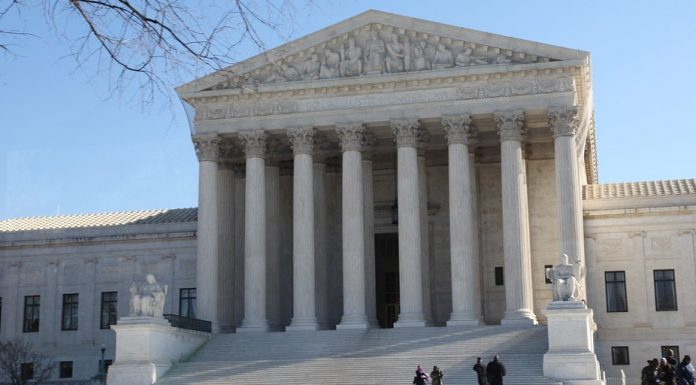The US Supreme Court summarily dismissed a case from Texas—along with at least 19 other states, the Trump campaign, hundreds of GOP congressmen and the Pennsylvania legislature—that sought a judicial review of evidence regarding massive vote fraud in the Nov. 3 election.
The court claimed in a statement late Friday that the plaintiffs lacked standing to proceed.
“Texas has not demonstrated a judicially cognizable interest in the manner in which another State conducts its elections,” it wrote in its decision. “All other pending motions are dismissed as moot.”
Texas Attorney General Ken Paxton addressed the question of standing at length in the complaint filed earlier this week.
He noted that the Supreme Court is the only court that has jurisdiction to resolve matters between different states.
The complaint argued that by violating their own state laws, the states also violated the Electoral Clause in Article III of the US Constitution.
Moreover, because the outcome impacted all 50 states—both in the presidency and in control of the US Senate—the four states named as defendants had disenfranchised voters in other states that had followed their own legally implemented election laws.
Justices Samuel Alito and Clarence Thomas agreed.
“In my view, we do not have discretion to deny the filing of a bill of complaint in a case that falls within our original jurisdiction,” wrote Alito.
The decision not to hear the case all but assured that there would be no injurious relief for vote-fraud victims prior to Monday’s convening of the Electoral College, where Democrat nominee Joe Biden is expected to be named the next president.
GOP legislatures may yet choose to pursue other maneuvers, such as appointing rival sets of electors, in battleground states like Pennsylvania, Georgia, Michigan and Wisconsin—the four states named in the lawsuit—all of which saw voting rules changed by executive action in defiance of state law.
But the rejection by the court—including the three “conservative” justices appointed by President Donald Trump—will be a significant setback.
Trump had referred to the case as the “big one” earlier in the week.
He had relayed optimism in a tweet on Friday that the court would at least allow the evidence to be presented.
If the Supreme Court shows great Wisdom and Courage, the American People will win perhaps the most important case in history, and our Electoral Process will be respected again!
— Donald J. Trump (@realDonaldTrump) December 11, 2020

